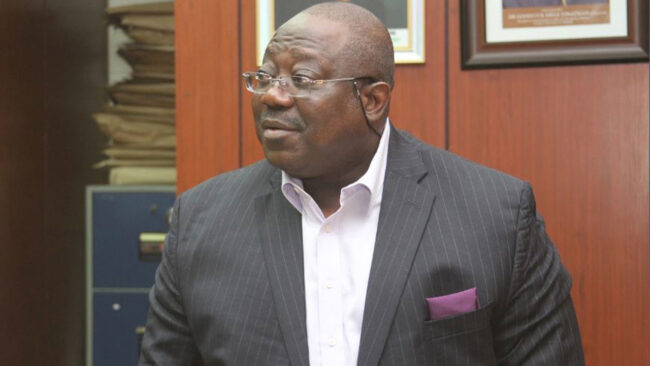Chairman, Federal Civil Service Commission, Abuja, Professor Tunji Olaopa, has called for the re-engineering and adequate capacity of the public service to meet the challenges of nation-building, good governance, and national development.
Olaopa, who described the public service as the powerhouse of bureaucracy, noted that the system that had been hitherto powered by the engine of a Beetle car now needs that of a jet to fire up and make progress.
He spoke while delivering a lecture entitled “Re-Engineering the Engine Room: The Civil Service as the Fulcrum of Sustainable Development” at the maiden reunion of the Association of Retired Heads of Service and Permanent Secretaries of Oyo and Osun States (AREHSPSOOS), held at the International Conference Centre, University of Ibadan, Ibadan.
The event was chaired by the former Head of Service of the Federation, Professor Oladapo Afolabi.
According to the guest lecturer, public service debilitation and reform possibilities underscore the possibility of a developmental state emerging in Nigeria, and the idea of sustainable development is the institutional bedrock for transforming the developmental agenda of the Nigerian state.
He said, “The public service system debilitation and reform possibilities underscore the possibility of a developmental state emerging in Nigeria and the idea of sustainable development. It is therefore the institutional bedrock for transforming the developmental agenda of the Nigerian state.
“This means that the ministries, departments, and agencies (MDAs)—the engine rooms of the public service system—must be adequately capacitated to become effective and efficient as the formidable institutional framework that would be ready at all times to meet the challenge of nation-building, good governance, and national development.
“To revisit the engineering metaphor that underlies this lecture, the powerhouse of the bureaucracy that had been hitherto powered by the engine of a Beetle car now needs that of a jet to fire up and make progress.
“This requires a change management framework that is anchored around three critical frameworks: the quality of bureaucratic efficiency; the quality of service delivery and performance accountability within a democracy; and the professionalism of the public servants.”
He said the challenge of sustainable development and democratic governance in Nigeria, especially at this time of crucial sociopolitical and economic upheavals, demands serious reflection and significant political action that will put the institutional reform of the public service system, at both the state and federal levels, at the top of the overall governance action plan of the government.
He added that Nigerians need a developmental state that will make democratic governance work, noting that a developmental state is anchored on the capability and readiness of the public service system that would deliver public goods and services effectively and efficiently.
The guest lecturer stressed that sustainable development requires, above all else, jumpstarting a national productivity movement that rides on a national waste reduction strategy, a new asset and facility management system, and a new national maintenance culture.
He added, “These critical frameworks focus on the objective of institutional reform: the public bureaucracies must be transformed to become fast-moving, intelligent, professional, information-rich, flexible, adaptable, and entrepreneurial; less employee-focused and rule-driven; deliver quality service; and be performance-focused, accountable, and productive—defined by objectives and measurable results, outputs, and outcomes capable of creating the policy climate that will unlock the energy of the private sector and other sectors.
“And there is a need to install a new productivity paradigm in the national economy operated by a multidisciplinary team of new generation public managers and project teams signed on to performance agreements or contracts within carefully crafted ministerial scorecards to which everyone is held accountable bound within a framework of social compact stewardship that sees citizens as clients deserving of effective and efficient services.”
He, however, warned that “none of these reform imperatives would make any sense if the public service does not facilitate a paradigmatic shift away from adversarial to developmental industrial relations that make it possible for the workplace to generate the level of performance and productivity commensurate with the reform inputs.
Earlier in his remarks, the Chairman of the occasion, Professor Oladapo Afolabi, commended the members of the association for their initiative and passion for contributing to the efficiency and improvement of the public service.
Particularly, he commended the members for taking good care of themselves years after service, noting that sustaining life after service has been what made many people fall into various things in their service years, hence the need to pass down the culture of honesty
“It is good we found a way to sustain ourselves. So this is what we need to pass down to those who are following us. But I don’t know how we will do it so that when we leave service or during service, we would not in any way regret being honest, having serious integrity, being skilled and really wanting to serve,” Afolabi said.
The highlight of the event was the presentation of awards to some members and the decoration of Governor Seyi Makinde as the Grand Patron of the Association.
ALSO READ THESE TOP STORIES FROM NIGERIAN TRIBUNE
